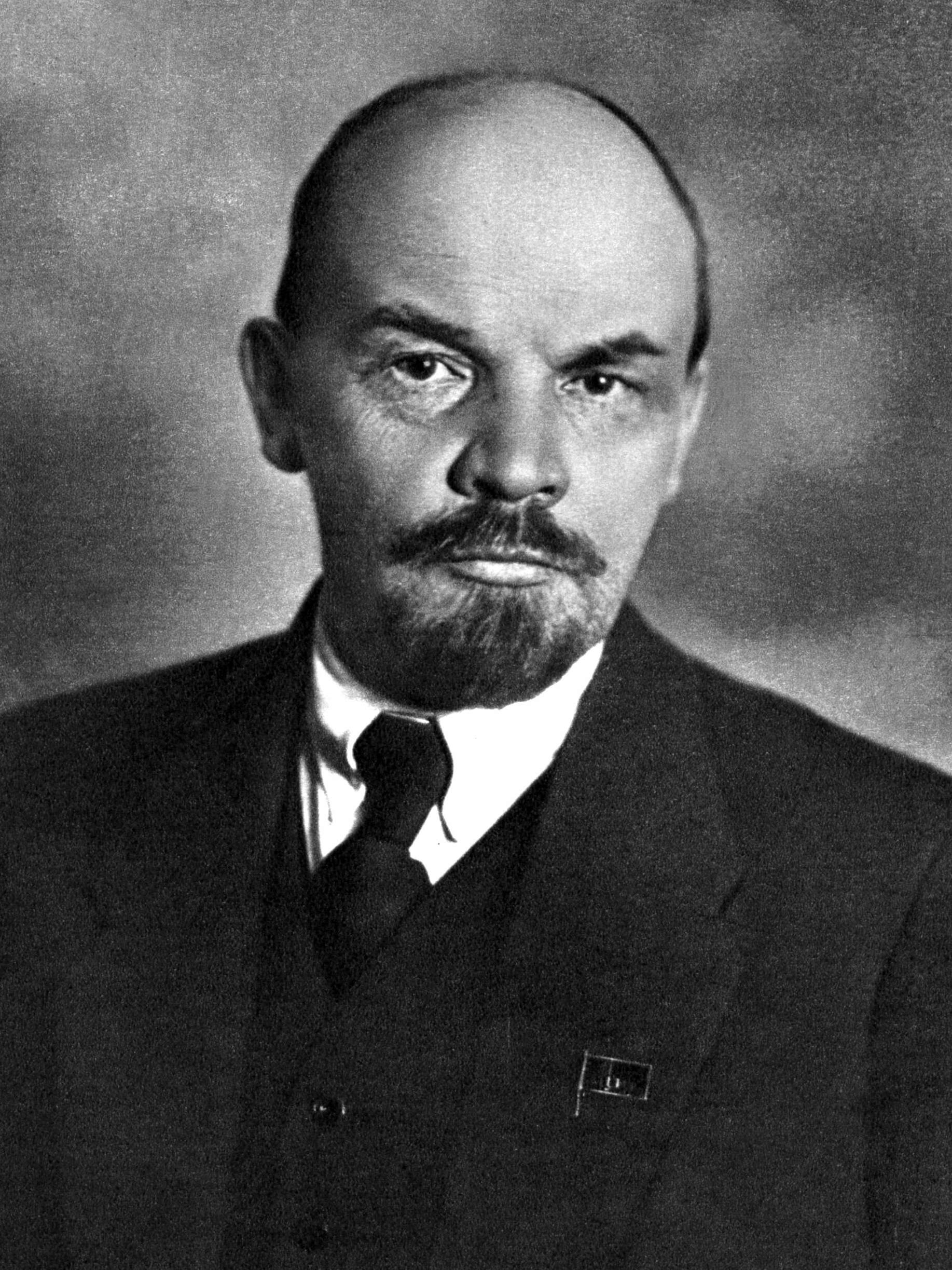Vladimir Lenin
 Vladimir Ilyich Ulyanov.}} ( 1870 – 21 January 1924), better known as Vladimir Lenin,; .}} was a Russian revolutionary, politician, and political theorist. He served as the first and founding head of government of Soviet Russia from 1917 until his death in 1924, and of the Soviet Union from 1922 to 1924. Under his administration, Russia, and later the Soviet Union, became a one-party socialist state governed by the Communist Party. Ideologically a Marxist, his developments to the ideology are called Leninism.
Vladimir Ilyich Ulyanov.}} ( 1870 – 21 January 1924), better known as Vladimir Lenin,; .}} was a Russian revolutionary, politician, and political theorist. He served as the first and founding head of government of Soviet Russia from 1917 until his death in 1924, and of the Soviet Union from 1922 to 1924. Under his administration, Russia, and later the Soviet Union, became a one-party socialist state governed by the Communist Party. Ideologically a Marxist, his developments to the ideology are called Leninism.Born into an upper-middle-class family in Simbirsk, Lenin embraced revolutionary socialist politics following his brother's 1887 execution. Expelled from Kazan Imperial University for participating in protests against the Tsarist government, he devoted the following years to a law degree. He relocated to Saint Petersburg in 1893 where he became a senior Marxist activist. In 1897, he was arrested for sedition and exiled to Shushenskoye in Siberia—where he married Nadezhda Krupskaya—for three years. After his exile, he moved to Western Europe, where he became a prominent theorist in the Marxist Russian Social Democratic Labour Party (RSDLP). In 1903, he took a key role in the RSDLP ideological split, leading the Bolshevik faction against Julius Martov's Mensheviks. Following Russia's failed Revolution of 1905, he initially campaigned for the First World War to be transformed into a Europe-wide proletarian revolution, which, as a Marxist, he believed would cause the overthrow of capitalism and the rise of socialism. After the 1917 February Revolution ousted the Tsar and established a Provisional Government, he returned to Russia and played a leading role in the October Revolution, in which the Bolsheviks overthrew the new government.
Lenin's Bolshevik government initially shared power with the Left Socialist Revolutionaries, elected soviets, and a multi-party Constituent Assembly, although by 1918 it had centralised power in the new Communist Party. Lenin's administration redistributed land among the peasantry and nationalised banks and large-scale industry. It withdrew from the First World War by signing a treaty conceding territory to the Central Powers and promoted world revolution through the Communist International. Opponents were suppressed in the Red Terror, and tens of thousands were killed or interned in concentration camps. His administration defeated right and left-wing anti-Bolshevik armies in the Russian Civil War from 1917 to 1922 and oversaw the Polish–Soviet War of 1919–1921. Responding to wartime devastation, famine and popular uprisings, Lenin encouraged economic growth through the New Economic Policy in 1921. Several non-Russian nations had secured independence from Russia after 1917, but five were forcibly re-united into the new Soviet Union in 1922, while others repelled Soviet invasions. His health failing, Lenin died in Gorki, with Joseph Stalin succeeding him as the pre-eminent figure in the Soviet government.
Widely considered one of the most significant and influential figures of the 20th century, Lenin was the posthumous subject of a pervasive personality cult within the Soviet Union until its dissolution in 1991. He became an ideological figurehead behind Marxism–Leninism and a prominent influence over the international communist movement. A controversial and highly divisive historical figure, Lenin is viewed by his supporters as a champion of socialism, communism, anti-imperialism and the working class, while his critics accuse him of establishing a totalitarian dictatorship that oversaw mass killings and political repression of dissidents. Provided by Wikipedia
